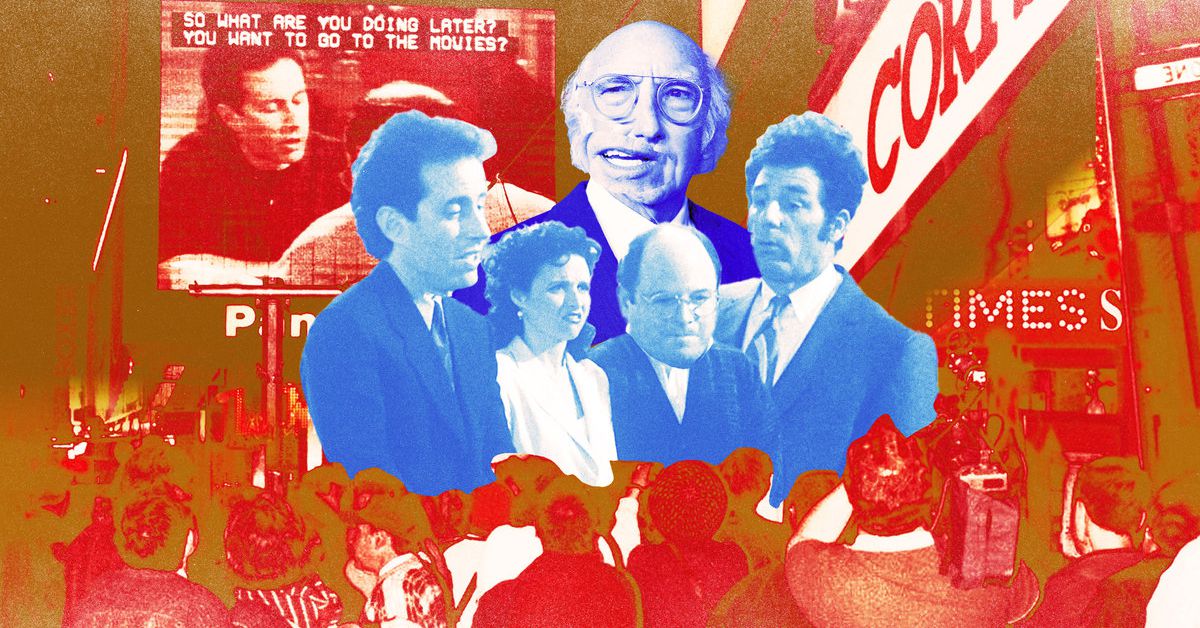How does David Mandel remember the reaction to the Seinfeld series finale? He’s not even sure his parents liked it.
America was angry that day, my friends, and the show’s supervising producer knew why. The last episode, Mandel says, “distilled the characters to their most basic form. Much of the audience did not want to be confronted by that.”
. . .
If we’ve learned anything about David over the past quarter century, it’s that he’s deeply, hilariously committed to his shtick. Which isn’t really shtick at all. At its shriveled heart, Curb Your Enthusiasm is a look into the mind of the kind of guy who’d make a show about nothing. The kind of guy who’ll always double down on what he would laugh at, no matter what anyone else thinks. The kind of guy who would, in a Season 7 episode of Curb, push back on, say, Jason Alexander framing a Seinfeld cast reunion as a chance to make up for the sins of the finale. “What does that mean, make up for the finale?” Larry asks. “There’s nothing to make up for.”
David has sprinkled that particular defiance throughout Curb Your Enthusiasm, but this final season is his coup de grâce. Everything, it seems, has been building toward one ultimate rebuke of the reaction to the most infamous moment in David’s career. As the HBO series comes to a close on Sunday, there once again will be courtroom drama. And though the main character will be the one sitting in the defendant’s chair, that series finale from 26 years ago is the thing that’ll truly be on trial. None of this should surprise anyone who’s actually seen the Seinfeld finale. The main characters may have learned absolutely nothing in it, but the episode taught us a lot about Larry David.

